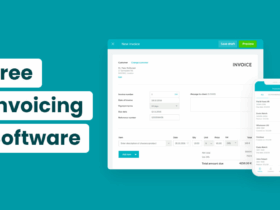What Is Crypto Airdrop?
A crypto airdrop is a marketing tactic used by blockchain projects to give away free tokens or cryptocurrencies to a targeted audience, mainly people who fit certain requirements or current holders of a particular cryptocurrency. The custom of delivering goods to those in need by dropping them from the air is where the word “airdrop” originated. Similar to this, these digital assets are freely given out in the cryptocurrency field in order to raise awareness, reward devoted users, or promote community involvement.
Airdrops can be given out in a number of ways, such as by hand to wallets that qualify, automatically through the use of blockchain snapshots, or by way of specified activities like posting on social media or finishing tasks inside a project’s ecosystem.
Although airdrops can be a useful tool for building a community and spark interest in a project, users should proceed with caution because not all airdrops are genuine and frauds are common in the cryptocurrency world.
What Is Phoenix Airdrop?
Phoenix Airdrop is a decentralized limit order book on Solana, supporting markets for spot assets. Phoenix has instant settlement. Unlike existing order books on Solana, Phoenix doesn’t require an asynchronous crank to settle trades.
Phoenix Airdrop doesn’t have its own token nor have they hinted at launching one but there’s a possibility that they launch one in the future. Users who trade on the platform may get an airdrop if they ever plan to launch one.
Basic Phoenix Airdrop Points
| Basic | Details |
|---|---|
| Token Name | Phoenix Airdrop |
| Platform | Solana |
| Support | 24/7 |
| Total value | N/A |
| KYC | KYC Is Not Requirement |
| Whitepaper | Click Here To View |
| Max. Participants | Unlimited |
| Collect Airdrop | Click Here To Collect Free Airdrop |
How To Claim Phoenix Airdrop Step-by-Step Guide:
- Visit the Phoenix website.
- Click on “Star trading”.
- Now, connect your Solana wallet.
- You will need some SOL or other supported tokens to trade. You can get them on Binance.
- Now, make trades on the platform.
- They currently don’t have their own token, but like other projects we’ve mentioned in our speculative airdrops section, they could also launch their token in the future and do an airdrop to early users who’ve made trades.
- Please note that there is no guarantee that they will do an airdrop to early users or launch their own token. It’s only speculation.
How To Check Phoenix Airdrop Is Real Or Fake
Checking the legitimacy of a crypto airdrop can be a bit tricky, as scammers often use sophisticated techniques to create fraudulent airdrop campaigns that appear to be legitimate. Here are some steps you can take to verify the authenticity of a crypto airdrop:
- Official Announcement Channel or Website: Visit the project’s announcement channel or official website. On their official channels, legitimate projects frequently share information about their airdrops. Look for any official updates, announcements, or blog articles about the airdrop.
- Team for the Project: Check the credentials of the project crew. Trustworthy initiatives typically have an open team with social media presence and professional profiles. If the project team is unknown to you or if it is impossible to verify the identities of the team members, proceed with caution.
- Participation in the Community: Reputable projects frequently have vibrant communities on social media sites like Telegram, Discord, or other platforms. Examine the official project social media pages and community channels for any updates and sincere conversations around the airdrop.
- Address of Smart Contract: Check the smart contract address if the airdrop includes sending tokens via a smart contract. Make sure the address supplied is the project’s official, accurate contract address. Addresses sent through unofficial sources should be used with caution since scammers may try to fool people into sending money to fictitious contracts.
- Whitepaper and Project Specific Information: Learn about the project’s objectives, technologies, and roadmap by reading the whitepaper and other official materials. If the project’s details seem hazy or inconsistent, or if there isn’t a whitepaper, proceed with caution.
- In summary, it’s important to conduct thorough research, verify the source and instructions, look for feedback from other users, and trust your instincts when evaluating the legitimacy of a crypto airdrop. By taking these steps, you can minimize the risk of falling for a fraudulent airdrop and protect your assets and personal information.
What are the risks of participating in an airdrop?
Participating in an airdrop carries various risks that individuals should be aware of before engaging in such activities. Airdrops, which involve the distribution of free tokens or cryptocurrencies to wallet holders, can attract scammers seeking to exploit unsuspecting participants. One common risk is falling victim to phishing schemes where malicious actors impersonate legitimate airdrop projects to trick users into providing sensitive information or private keys.
Additionally, some airdrops may be associated with dubious or unreliable projects, leading participants to invest time and resources in tokens that ultimately hold little to no value. Furthermore, participating in airdrops may inadvertently expose individuals to regulatory issues, as some jurisdictions have specific regulations surrounding token distributions. It is crucial for participants to exercise caution, thoroughly research airdrop projects, and be wary of requests for personal information to mitigate these potential risks.
Phoenix Airdrop Pros Or Cons
Pros of participating in an airdrop:
- Decentralization: Phoenix is a decentralized network that offers users better security and resilience to censorship. For individuals who give the decentralization principles top priority in their trading activities, this is a significant benefit.
- Limit Order Functionality: Phoenix offers limit order functionality, which enables customers to specify the price ranges at which they are prepared to purchase or sell assets. More control over transactions and maybe better execution prices are given to traders by this capability.
- Markets for Spot Assets: Phoenix offers spot asset markets that let users transact in real time with the genuine owners of the underlying assets. For people who would rather transact right away without depending on derivative products, this is useful.
Cons of participating in an airdrop:
- Uncertain Token Launch: There is uncertainty surrounding the possible launch of a native token in the future. If traders are unclear about the tokenomics, utility, or potential effects of a future token on their trading experience, they can be reluctant to interact with the platform.
- Dependency on Solana: The Solana blockchain is the foundation of Phoenix. Phoenix’s performance could be impacted by problems or constraints with the underlying Solana network, despite the fact that Solana has grown in popularity because to its speed and cheap transaction prices.
- Restricted Information: Users may not have enough knowledge about the platform’s long-term goals and long-term viability due to the lack of a native coin and the absence of any indications regarding its debut. For some consumers, this lack of openness could be concerning.
Phoenix Airdrop Final Verdicts
In conclusion, Phoenix shows promise as a decentralized limit order book on the Solana blockchain. With its unique rapid settlement functionality, Phoenix offers a smooth trading experience for spot assets. Its unique feature that distinguishes it from other order books on Solana is the removal of the requirement for an asynchronous crank to settle deals.
Phoenix is notable for not having a native token at this time. Although there are no formal plans to create a token, it is yet possible in the future. This gives consumers a sense of anticipation since, in the event that a token is issued, the platform may decide to deploy an airdrop technique for users who are actively trading. Instead of impeding the platform’s current functionality, the lack of a native token makes opportunity for potential future advancements that could further improve the Phoenix ecosystem.
Phoenix is a project worth following as it develops further within the decentralized finance scene because of its dedication to quick and easy settlement as well as the possibility of a native coin. Phoenix is an interesting platform that could offer more rewards as it develops and expands in the dynamic decentralized finance market, appealing to both traders and fans.








































